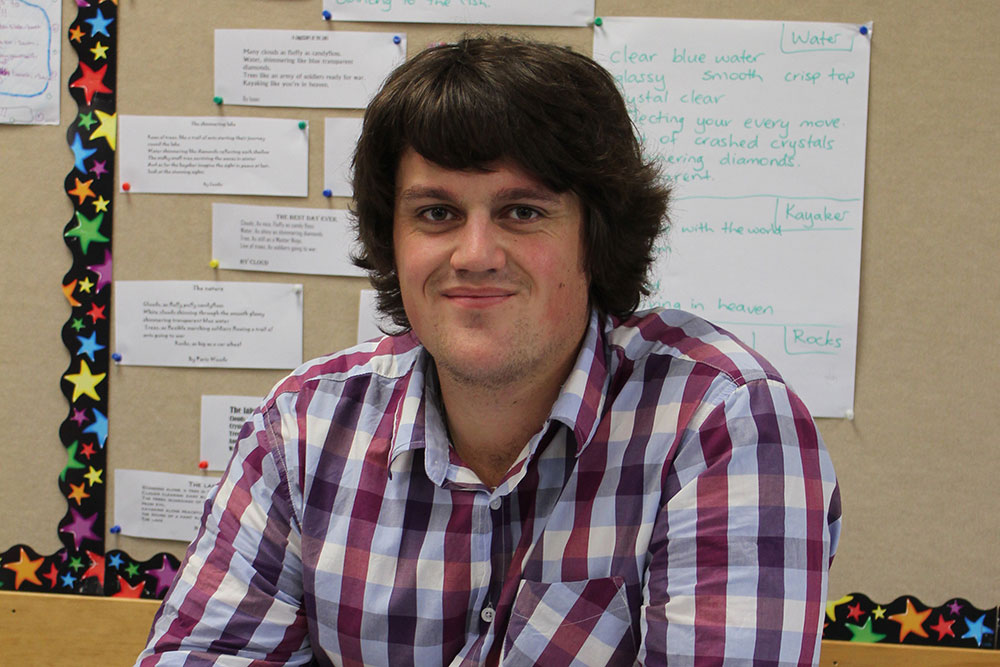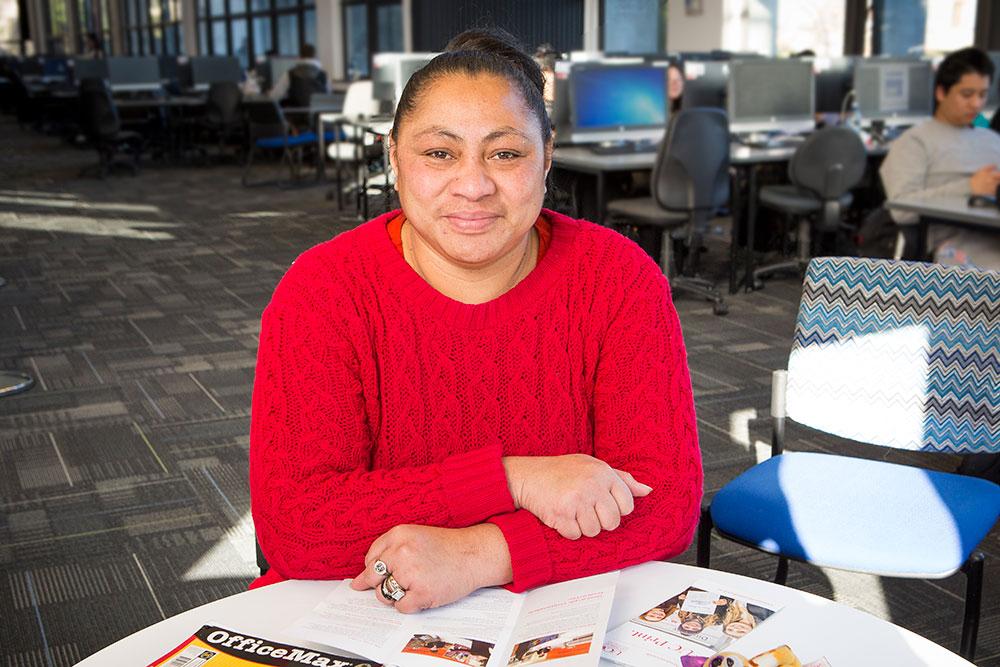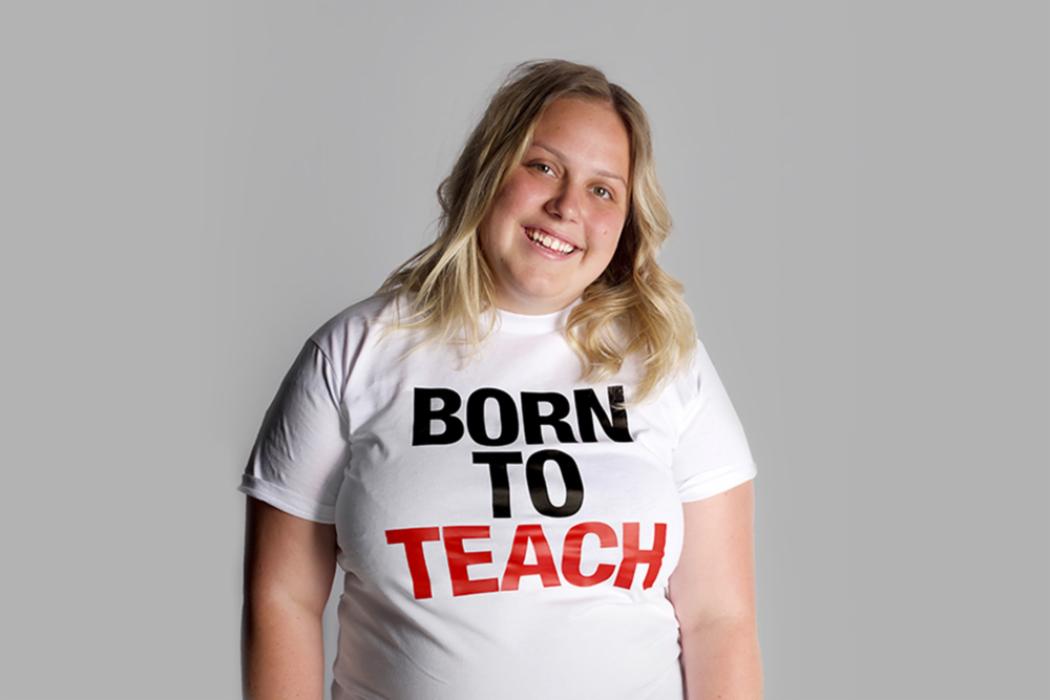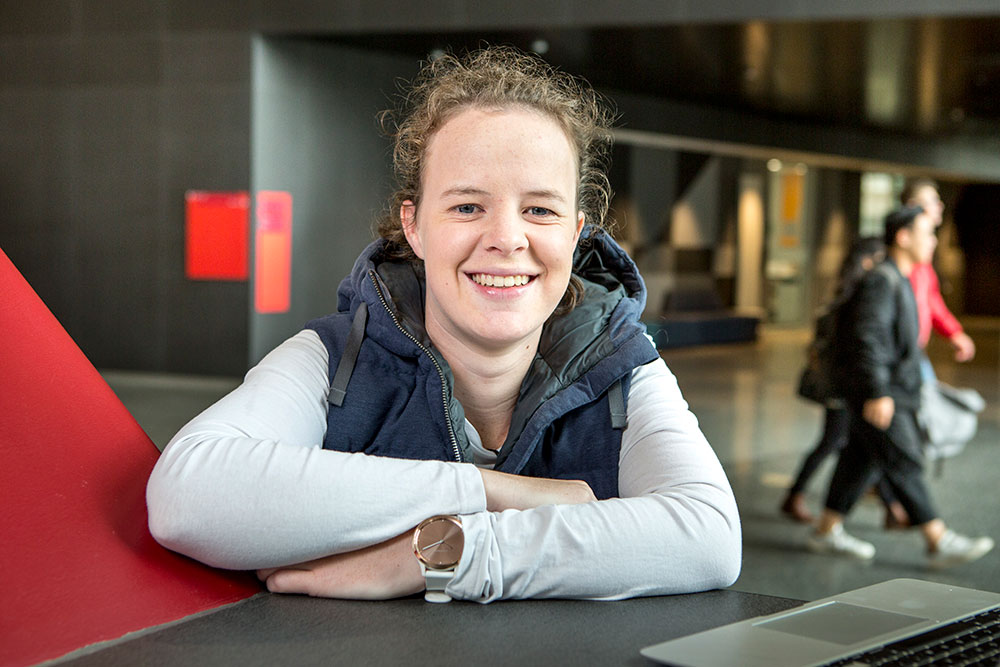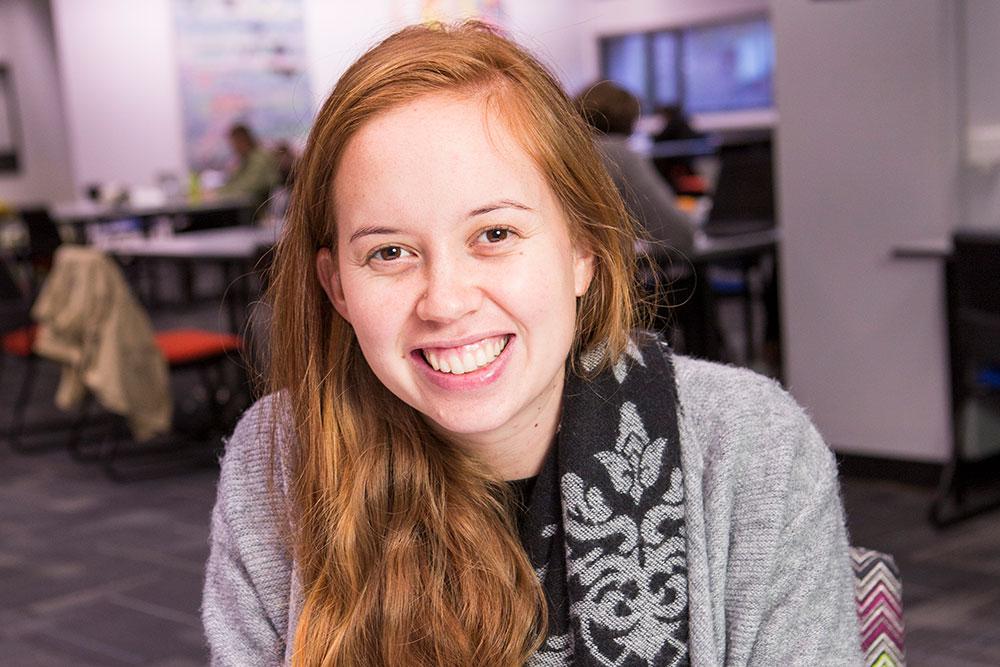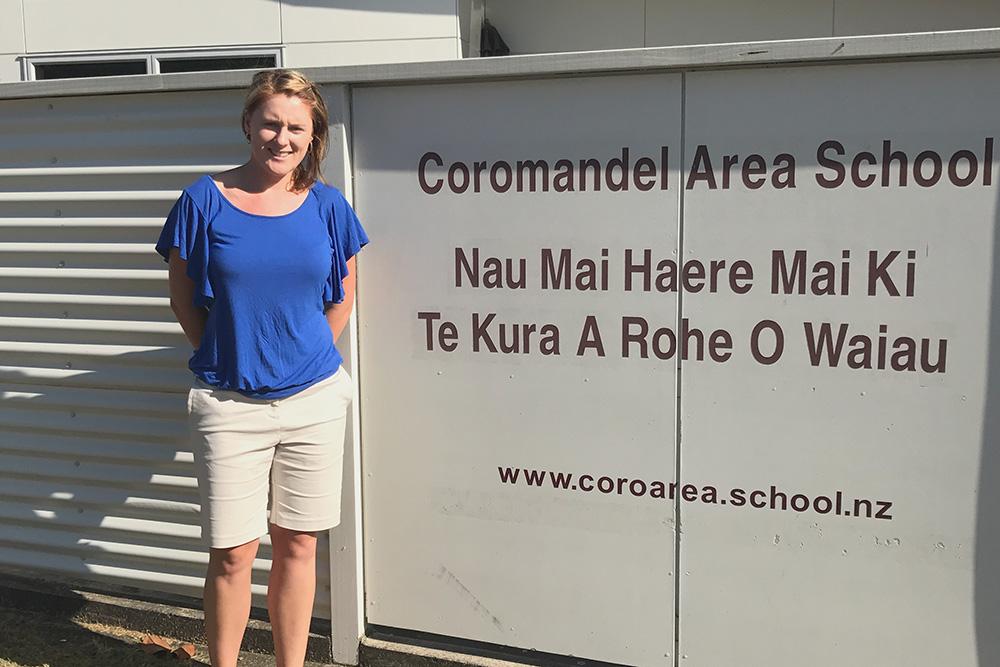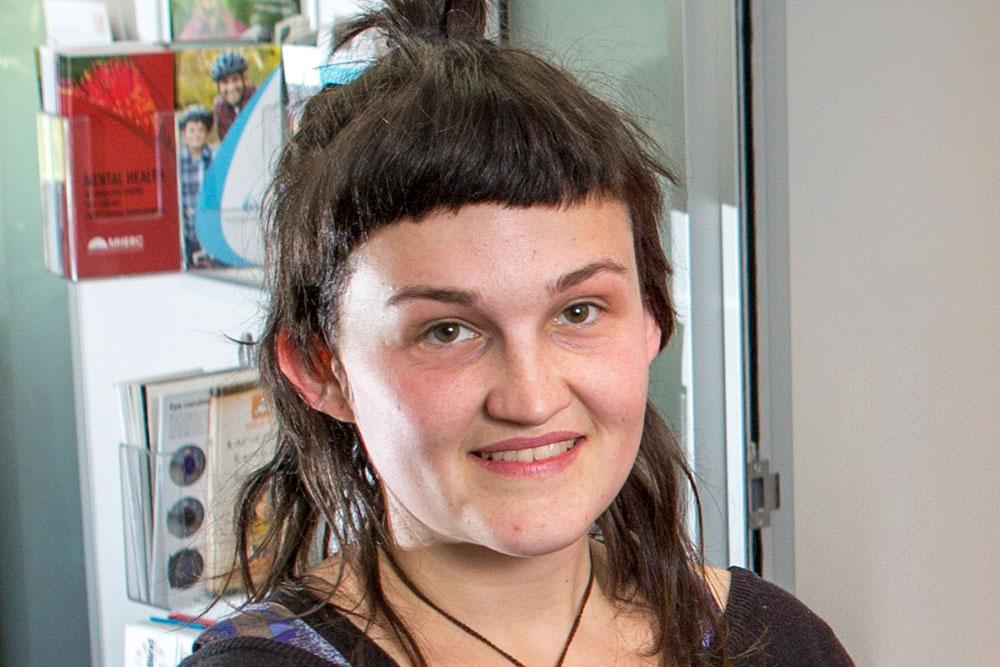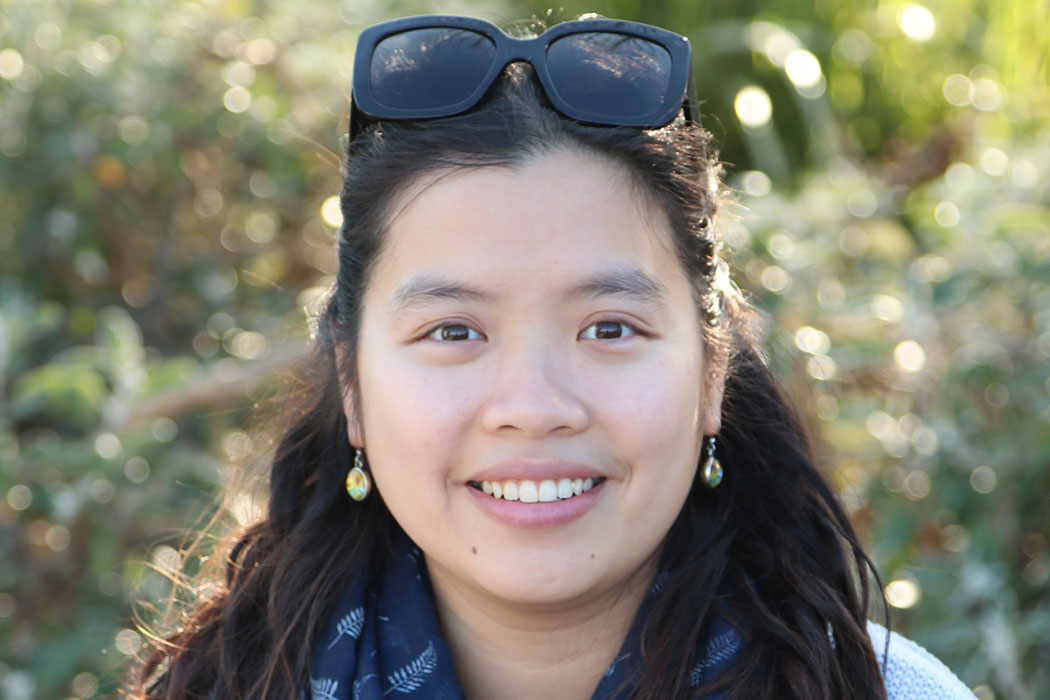Be part of their learning journey
You will introduce tamariki to the world of learning, and start them on their road to reading, writing and mathematics. It’s a very rewarding and satisfying career in which you can make a real difference in the lives of our tamariki.
As a primary teacher, you will engage tamariki in future-focused learning through a range of curriculum areas and through a commitment to bicultural practices in Aotearoa New Zealand. You will support tamariki to develop their skills and knowledge and prepare them for a changing world.
Primary teacher education students:
- Are interested in working with tamariki and their communities
- Want to teach all school subjects
- Are organised and well prepared
- Are nurturing and enjoy cultivating a love of learning in others
If this sounds like you, read on to find out more about studying these programmes at UC.
You'll learn about the theory, practice and management of teaching, including the place and role of education, the characteristics of learners and the teaching-learning process. You'll also learn about the curriculum taught in schools today to prepare you for the profession of teaching. This includes English, Māori language, mathematics, science, technology education, social studies, art, music, drama and dance, health and physical education and learning languages.
You will spend time working in a classroom where you can trial and refine your planning, teaching and management skills. By the end of your studies at UC you will have learnt and practised all the teaching skills required of teachers in New Zealand primary, intermediate, middle and area schools.
Distance students are required to attend On-site Intensives (OSI) in Ōtautahi Christchurch.
UC offers five qualifications for anyone wishing to become a Primary school teacher:
Successful completion of any of these pathways lead to eligibility to apply for Teaching Council of Aotearoa New Zealand registration. However, there are differences in the duration, focus and qualification awarded.
Which pathway is for me?
The Ako:BTchLn is a three-year undergraduate programme.
Already have a degree? You can choose from one of our one year programmes GradDipTchLn, PGDipTchgLn and the MTchgLn.
Ako: Bachelor of Teaching and Learning (Primary)
The Ako: Bachelor of Teaching and Learning (Primary) is a professional qualification that prepares you for a rewarding career as a primary school teacher.The degree takes three years of full-time study, or can be studied part-time for up to six years. This pathway is available on campus in Ōtautahi Christchurch by or distance study. If you would like to study our initial teacher education (ITE) qualifications by distance you will need to reside in Aotearoa New Zealand.
You will need to: attend on-site intensives (OSI) in Ōtautahi Christchurch, one of which is an OSI at the beginning of the programme; undertake a community engagement course; and undertake professional practice placements in schools in Aotearoa New Zealand. If you are enrolled at the Whakatū Nelson Campus, you will complete a blended model of online and face-to face courses.
Ako: Bachelor of Teaching and Learning (Mātauranga Māori)
The Ako: Bachelor of Teaching and Learning Mātauranga Māori endorsement prepares you for a teaching career in different primary settings. The degree takes three years of full-time study, or can be studied part-time for up to six years. This pathway prioritises te reo Māori me ōna tikanga, and is founded on mātauranga Māori (Māori knowledge), Māori philosophies, and values.
The Mātauranga Māori Initial Teacher Education pathway will equip you to work in whare kōhungahunga (early childhood) and/or kura tuatahi (primary) settings working at level 2 (51–80% te reo Māori immersion) or higher. A graduate of the Mātauranga Māori programme has the ability to work in bilingual English medium educational settings, where knowledge of te reo Māori me ōna tikanga, bicultural practice, and culturally empowering pedagogies are valued as a means to support child development.
- He ako ā-rorohiko, ā-kanohi kitea hoki te momo ako, nā reira, ka taea te ako mai tawhiti. Heoi anō me matua tae ā-tinana mō ētahi wāhanga o ia tau, he noho marae ki te hau kāinga o Kāi Tahu ia tau.
This is a mixed method style of delivery with content being available online, therefore there is the ability to learn from anywhere. Kanohi ki te kanohi (face to face) delivery will also be included in the programme through scheduled block wānanga each year and one noho marae each year.
For more information kōrero with a Student Advisor
Graduate Diploma in Teaching and Learning (Primary Education)
If you already have a Level 7 bachelor's degree or equivalent you can enrol in the one-year Graduate Diploma in Teaching and Learning (Primary Education) (GradDipTchLn). This programme can be undertaken full-time in one year, on campus in Christchurch and full-time or part-time or full-time by distance study. Distance students are required to attend an On-site Intensive (OSI) in Ōtautahi Christchurch at the beginning of the programme. This option is suited to those looking for a well-respected pathway into teaching, including 80 days of professional practice in schools and research-based coursework.
Postgraduate Diploma in Teaching and Learning
If you already have a Level 7 bachelor's degree or equivalent with a B average at 300-level you can enrol in the Postgraduate Diploma in Teaching and Learning (PGDipTchgLn). This pathway combines research-informed knowledge and critical inquiry with practice-based experiences in schools to prepare you for a career in teaching.
The programme can be studied full-time in one year either on-campus or by distance study (Primary Education only). Distance students are required to attend an On-site Intensive (OSI) in Ōtautahi Christchurch at the beginning of the programme.
The PGDipTchgLn is a pathway to the Master of Teaching and Learning (MTchgLn). To transfer from the PGDipTchgLn to the MTchgLn, you must achieve a B average or better in the PGDipTchgLn. By completing the PGDipTchgLn plus an additional 30-point course, students can achieve the MTchgLn.
Master of Teaching and Learning
If you already have a Level 7 bachelor's degree or equivalent with a B average at 300-level you can enrol in the one-year Master of Teaching and Learning (MTchgLn). The MTchgLn will equip you with enhanced research-based knowledge and inquiry skills, experiences of contemporary educational theory and professional practice so you can become a teacher with the expertise essential to schools in the 21st century.
The Teaching Council is currently consulting on a proposal to introduce a requirement that student teachers enrolling in an initial teacher education (ITE) programme for primary teaching would have to demonstrate competence in mathematics, using either of the following measures:
- Holding a minimum of 14 credits at Achieved, Merit or Excellence in the NCEA subjects ‘Mathematics and Statistics’ and /or ‘Pāngarau’ at NCEA Level 2 or above (or a recognised equivalent), or
- Passing a mathematics assessment as specified by the Teaching Council.
University of Canterbury is continuing to recruit students to begin study in 2025 based on the existing ITE entry requirements. The Teaching Council has advised us that they are comfortable for enrolment to continue as no decision has yet been made.
However, student teachers commencing study in 2025 should be aware that, if the Teaching Council were to approve the current proposal after consultation, should they not meet measure (a) above, they would be required to pass the mathematics assessment specified by the Teaching Council with at least the specified minimum score before they were able to graduate from the programme. (This reflects that the Teaching Council’s consultation proposes, as a transitional arrangement for 2025 and 2026, that measure (b) can be able to be met prior to graduation, rather than prior to entry to the programme.)
Note: this message reflects advice received from the Teaching Council.
If you have any questions please kōrero with our Student Advice Team.
All Initial Teacher Education programmes have one intake each, starting in January or February.
Applications for teacher education programmes will close on 1 December each year for domestic applicants (31 October each year for international applicants). While we process applications as they are received, many of our programmes have a limited capacity for places and applications may close earlier if this capacity has been reached.
Our teacher education programmes have specialised application processes. Please read the Guide to applying section and complete the steps, before applying through myUC.
Before applying, it’s important to consider the commitment you are making to a professional education programme. To be successful, you will need to devote a significant amount of time each week to study and preparation, as well as demonstrate a commitment to professionalism in all areas.
- Find out more about Studying Teacher Education commitments
Please note there is a new proposed mathematics entry requirement find out more here.
The Ako: Bachelor of Teaching and Learning is open to any student with University Entrance.
If you are 20 years of age or over, recent tertiary study is desirable. For example, you may want to consider the Certificate in University Preparation (CUP) before applying.
If you already have a bachelor's degree you can apply for the one-year Graduate Diploma in Teaching and Learning (Early Childhood), Graduate Diploma Teaching and Learning (Primary Education), Postgraduate Diploma in Teaching and Learning (Primary Education). If you already have a bachelor's degree with a B+ average in your major 300 level courses you can apply for the one-year Master of Teaching and Learning (Primary Education) .
Selection for entry is not automatic and is based on:
- Academic ability
- Involvement and interest in working with children
- Community involvement
- Communication skills – you need to be able to communicate your ideas clearly, confidently and coherently, and to listen and respond to others appropriately
- A police check and an interview
See our application requirements teacher education and guide to applying pages for further application information.
English Language Competency requirements for Initial Teacher Education programmes
To gain entry into an Initial Teacher Education programme you must meet certain standards of English or te reo Māori language competency as required by the Teaching Council of Aotearoa New Zealand.
Information on the current English Language Competency requirements can be found at https://teachingcouncil.nz/getting-certificated/for-overseas-trained-teachers/language-competency-requirements/
Note: we will accept and progress your application even if you haven’t yet met the English Language Competency requirements at the time you submit your application. If your application is successful any offer will be conditional on meeting English Language Competency requirements. A full offer will not be provided until this requirement has been met.
Graduates of our Primary Teacher Education programmes will be eligible to apply for provisional registration. This enables you to apply for teaching positions in New Zealand. Please contact the relevant authorities for international requirements.
Our graduates have gained positions in primary, intermediate, middle and area schools in New Zealand and overseas. Some have also gained positions in secondary schools, government departments, recruitment and human resource management, universities, as well as in private academies and agencies.
For more information about the skills you will learn and the jobs and activities our graduates do visit the UC Careers Hub What can I do with a degree in Primary Teacher Education?

